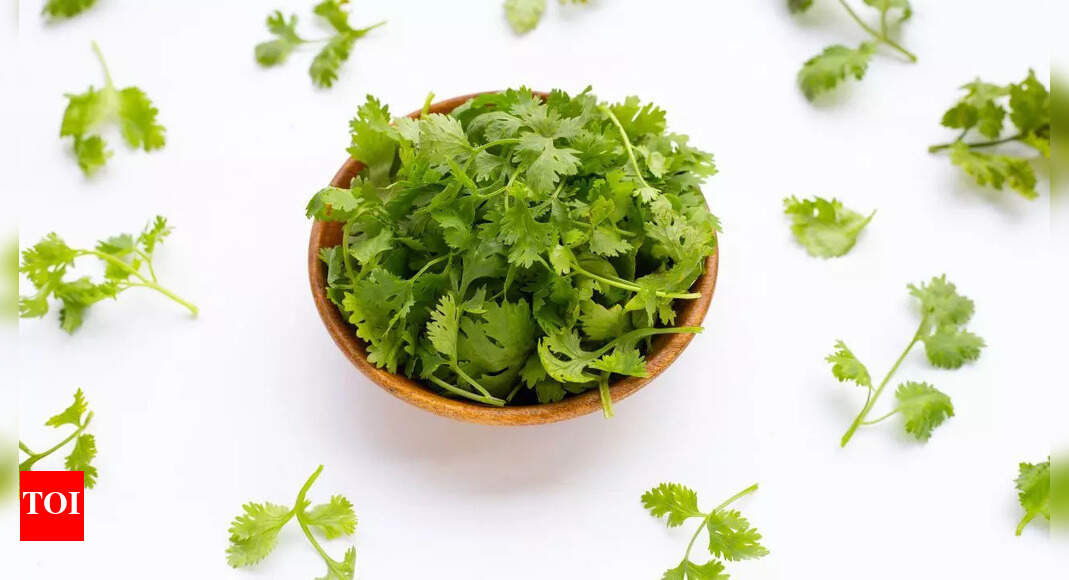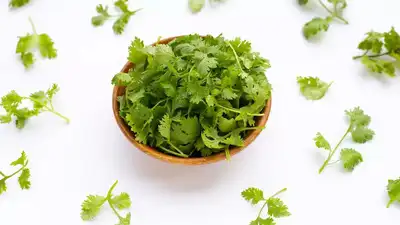
Cilantro, also known as coriander leaves, is gaining recognition as a powerful herb with notable health benefits. Research suggests it may help reduce inflammation, lower anxiety, and improve blood sugar levels, making it more than just a flavourful garnish. Derived from the Coriandrum sativum plant, cilantro is rich in antioxidants and anti-inflammatory compounds.While some people perceive its taste as soapy due to a genetic trait affecting the population, it remains a staple in global cuisines. Popular in Mexican, Indian, Middle Eastern, and Southeast Asian dishes, coriander leaves add both vibrant flavour and functional health benefits to meals.
The benefits of coriander leaves in reducing inflammation, anxiety, and blood sugar
1. Reduces inflammation naturallyCoriander leaves is packed with bioactive compounds, polyphenols, and antioxidants that combat systemic inflammation. Research suggests that it helps reduce inflammatory signaling, which is often associated with autoimmune disorders, neurodegenerative diseases, gastrointestinal issues, and cardiovascular problems. Its potent antioxidant content also helps neutralise harmful free radicals, supporting overall cellular and tissue health.2. Calms the mind and eases anxietyEmerging research highlights coriander leaves’ potential in reducing anxiety. Though the exact mechanisms are still under study, it’s believed that cilantro’s calming phytochemicals and antioxidant effects help support neurological balance. This makes it a promising natural aid for managing stress and promoting mental well-being.3. Supports blood sugar and metabolic healthCoriander leaves may play a helpful role in managing blood sugar levels and improving insulin sensitivity. Some of its natural compounds have been linked to better glucose regulation, making it especially beneficial for individuals with prediabetes or type 2 diabetes. Incorporating coriander leaves into meals regularly may support long-term metabolic health.
How to use coriander for health benefits
- Add fresh cilantro leaves to salsas, guacamole, chutneys, and salad dressings.
- Stir into curries, soups, and stews just before serving to preserve its delicate nutrient content.
- Blend into green smoothies or chutneys.
- Store fresh coriander leaves in water or wrapped in a towel in the fridge to retain freshness.
Precautions to note
Those on blood thinners should consult a healthcare provider, as cilantro is rich in vitamin K and can affect clotting.Individuals with pollen-related allergies may experience mild reactions.
Best complementary herbs for a powerful anti-inflammatory diet
Turmeric : Take with black pepper or a healthy fat to boost absorption. Known to reduce LDL cholesterol and inflammation, it’s been studied extensively in human trials Ginger: Use fresh or powdered ginger in teas and cooking. Studies suggest 500–2,000 mg/day is beneficial for blood pressure, lipids, and inflammation Cloves: Clove oil contains eugenol, a phenolic compound that blocks inflammatory mediators and may protect cardiovascular health Thyme, Garlic, Rosemary, Parsley: These herbs contain bioactives that support heart health by reducing inflammation, improving circulation, lowering blood pressure, and improving cholesterol profilesAlso read | Lemongrass tea: A delicious way to support heart health, skin, weight management, and more







